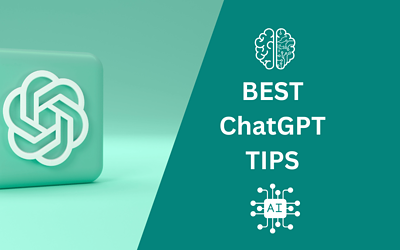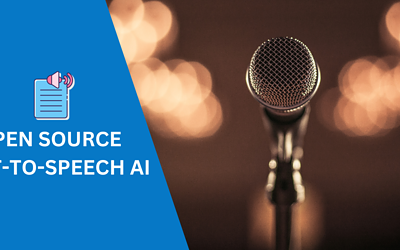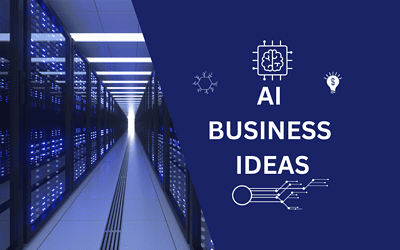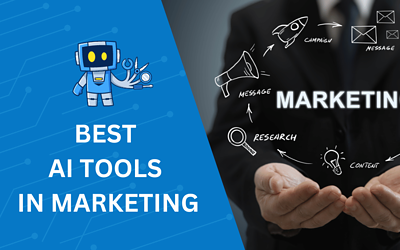5 Ways AI Is Reshaping Careers and Job Markets
The “concept of AI”, first introduced in the 1950s, has seen unprecedented advancements in the last decade. Today, AI has permeated our daily lives, from personalized shopping recommendations on popular eCommerce websites to digital assistants in our smartphones.
AI is here to stay! Period.
It’s not knocking on the door anymore, it’s kicked it wide open.
Sundar Pichai, Google’s CEO, likens the impact of AI to that of fire or electricity.
Tools like ChatGPT, DallE, and Midjourney are making headlines, transforming the way we work and live. ChatGPT, in particular, has the record of the fastest-growing platform, in just 5 days it surpassed 1 million users.
However, the rapid rise of AI has sparked a debate.
Market research analysts argue that AI has the potential to bring about numerous positive changes in society, including enhanced productivity, improved healthcare, increased access to education, and even companionship. They believe that AI, while taking some jobs, will create new ones.
Critics, particularly those in manual, repetitive jobs, (I mean, do you blame them?) view AI and robotics as disruptive forces that steal jobs. Yet, it’s undeniable that robots and AI technologies can create new vocations, solve complex problems, and make our daily lives easier and more convenient.
Here are five of the most significant ways AI will reshape the future of work:
1 – Routine Task Automation
AI is already automating many tasks that were once performed by humans, and this will be an accelerating trend for years to come. This will lead to job displacement in some industries, as AI systems become more capable of performing tasks that were once considered to require human intelligence.
Here are some specific examples of how AI is automating routine tasks:
- Customer Service: AI-powered chatbots handle routine inquiries, answer frequently asked questions, and resolve simple issues. (Many banks and e-commerce websites already use this).
- Data Entry and Processing: OCR powered by AI is being used to automate data entry tasks, such as converting scanned documents into digital text. Natural Language Processing (NLP) is being used for extracting information from text documents, for example.
- Manufacturing and Assembly: Robots controlled by AI can execute jobs such as welding, assembly line operations, and quality control inspections, increasing efficiency while reducing human interaction.
- Financial Analysis and Trading: Data analysis, risk assessment, and trading strategies…you name it! AI-powered systems can analyze vast amounts of market data, identify patterns, and make investment recommendations.
- Medical Diagnosis and Treatment: AI algorithms can analyze medical images, identify potential abnormalities, and assist doctors in making accurate diagnoses. They can also recommend treatment plans and monitor patient responses.
A study published in the journal Nature Medicine found that an AI algorithm was able to detect skin cancer with 95% accuracy.
While AI may automate certain tasks, it also opens up new opportunities. It allows us to focus on more complex and creative tasks.
2 – Job Creation and New Opportunities
AI is a new industry of its own now.
“AI won’t replace humans, humans using AI will replace humans”.
The jobs of the future might be ones we’ve never heard of before. As AI continues to evolve, it will require professionals with new skill sets to manage it. This means that while some jobs may become obsolete, others will emerge, and current roles will evolve.
But hold on a minute, what new skills do I need to learn?
And what are the new jobs going to be?
Glad you asked, here are the skills that will help you out in the new AI revolution:
- Prompt Engineering
- AI Development (Software Engineering)
- Content Curation
- Tech Entrepreneur (Creator Economy)
Read: 101 AI Business Ideas for Entrepreneurs in 2024
Generative AI can be a powerful tool for content creation, But …
It is not a replacement for human creativity. While generative AI can produce content that is impressive in its own right, it lacks something:
MEANING
Art, language, and AI are all instruments, crafted by humans to simplify life and facilitate communication.
Meaning cannot be replicated.
Humans are the only known species capable of imbuing things with meaning. There will always be a need for human-created content, upon which generative AI will draw inspiration for its creations.
3 – Democratization of Education and Training
Traditionally confined to formal institutions like schools and universities, education has often been a privilege, inaccessible to many. This has created a chasm in knowledge and skill acquisition, stifling individual potential and societal progress.
But now, artificial intelligence (AI) is bridging this gap, democratizing education and ushering in an era of lifelong learning accessible to all. Here are some popular examples:
- Degreed – takes AI-powered recommendations to the next level, enhancing employees’ learning journeys.
- Pluralsight – elevates the learning experience through the integration of AI algorithms within its platform.
- SAP SuccessFactors – recently introduced three groundbreaking solutions designed to future-proof businesses and address skills gaps
- You may find more examples of the best AI tools for students here.
One of the focuses of the official report (U.S. Department of Education), titled “Artificial Intelligence and the Future of Teaching and Learning: Insights and Recommendations”, was: Intelligent Tutoring System (ITS).
The report includes: “These models observe students as they work on mathematical problems on a computer and provide feedback on specific steps, not just the final solution. This approach, which mirrors effective human tutoring, helps students stay on track and understand the process of solving problems”
AI Homework Helpers, serving as instructional assistants, can conduct human-like conversations and provide adaptive tutoring to students. They can offer constructive feedback on student writing, aiding in the refinement of their skills.
It can even generate prompts to stimulate more insightful questions about learning. For students with disabilities and English language learners, AI can provide customized learning and translation services.
4 – AI in Hybrid and Remote Work
Remote work was a trend that broke out all over the world because of COVID-19. Unlike the pandemic itself, the narrative of remote work has persisted. The protagonists of this story are not just the employees but also the AI-powered tools that are reshaping the way they work.
Despite the tough talk about forcing employees back to offices, the reality is different. The capitalist marketplace, governed by supply and demand, dictates not just prices but also salaries and benefits. Tech giants like Amazon, Apple, Google, Meta, and Microsoft, despite their public stance against remote work, are quietly seeking remote workers.
Why?
Because they need workers, and there simply aren’t enough to go around.
AI has emerged as a powerful ally for remote workers, especially virtual assistants, meeting platforms, project management tools, and real-time translation services, all powered by AI, are breaking down geographical barriers, fostering diversity, and allowing companies to tap into a global talent pool.
The transformation in the where of our working lives is about to collide with a transition in who is doing that work.
And that’s profound.
This collision is the new hybrid work, in which organizations are made up of a mix of on-site and remote workers, and teams are made up of a mix of human and artificial colleagues!
5 – Job Role Reversal
There is a growing possibility that we will witness a role reversal in the workplace, where humans will be assisting machines rather than the other way around. This shift will have a profound impact on how organizations are structured and operated.
This shift is expected to empower humans to perform tasks more efficiently, as AI becomes a means of production that will enable one to do the work of many. This change is likely to be bigger than what we anticipate, and AI won’t just boost efficiency for coding, marketing, legal, or healthcare admin work, but entirely evolve how businesses and organizations of all types are built and run.
Read: Best AI Tools in Marketing: Boost Your Campaigns in 2024
Jobs poised for reversal:
- Office jobs: AI systems rapidly process and synthesize information and generate new content. These tools are exposing office jobs, which require more cognitive skills, creativity, and high levels of education, to automation
- Telemarketers and teachers: tasks such as scheduling, customer service, and route optimization
- Mathematics: The job that both humans and AI agreed was most exposed to automation is a mathematician.
- Coding and software engineering: AI is changing the code creation process, with 1 million developers already using GitHub Copilot to generate code.
- Healthcare administration: AI is expected to significantly transform healthcare administration, making it more efficient and accessible.
The Future of Work
AI is accelerating processes, making tasks more accessible, and saving time.
Preparing for an AI-integrated future involves a combination of upskilling, reskilling, staying informed, and maintaining an adaptable mindset. The challenges are undeniable since they can also bring risks that we must be aware of … job elimination, systemic bias, misinformation, malicious use, and devaluation of intellectual property.
But those proactive in their personal and professional development approach will be best positioned to capitalize on new opportunities. And we want you to be one of them.







